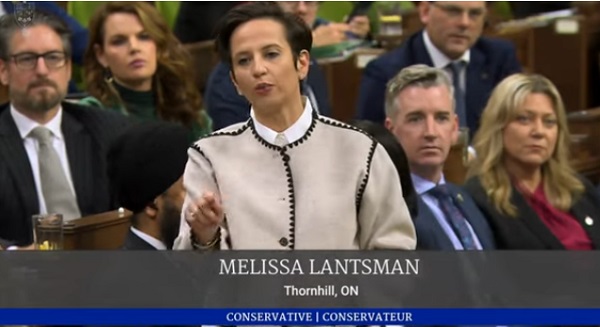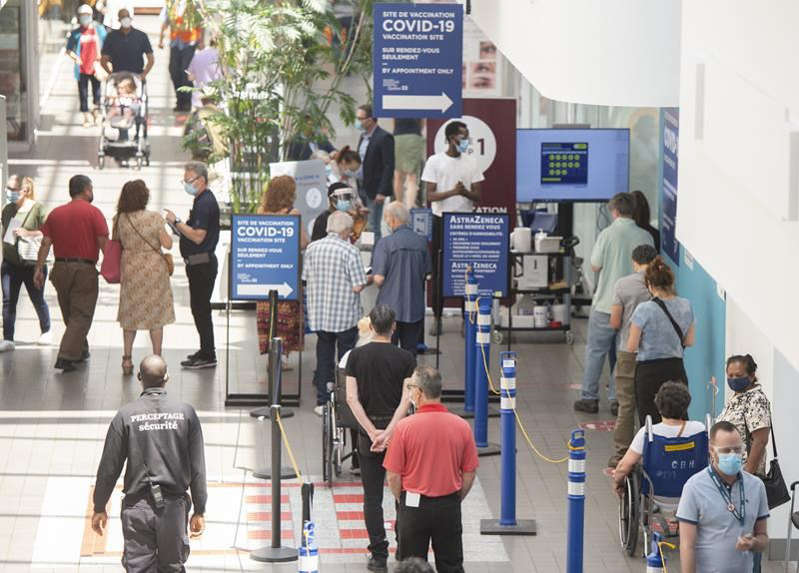MAiD
Disability groups files legal challenge against Canada’s euthanasia regime

From LifeSiteNews
‘Instead of providing the support and resources we need to live, our government is offering death,’ a coalition of disability advocacy groups said in a press release about its legal challenge to Canada’s euthanasia regime.
A coalition of Canadian disability advocacy groups have banded together to file a “Charter Challenge” against the federal government for allowing the euthanasia of people who are not terminally ill but suffer from chronic illness or disability.
The coalition said its legal challenge, which is before the Ontario Superior Court of Justice, “is about protecting the equality and human rights of all people with disabilities in Canada,” as set out in the nation’s Charter of Rights and Freedoms.
“Instead of providing the support and resources we need to live, our government is offering death. It’s unacceptable, and we won’t stand for it,” noted National Chairperson of the Council of Canadians with Disabilities (CCD) Heather Walkus in a press release for the coalition released on September 27.
The coalition is made up of the CCD, Inclusion Canada, Indigenous Disability Canada (IDC/BCANDS), DAWN Canada, and two people who were harmed by Canada’s so-called “Track 2 MAiD” allowances.
The group said it “opposes” Track 2 of Canada’s Medical Assistance in Dying (MAiD) law, “which provides assisted suicide to people with a disability who are not dying, or whose death is not ‘reasonably foreseeable.’”
The group is claiming in its court challenge that making MAiD available to people who are not dying but may have a serious medical condition is a violation of their “fundamental rights” to liberty and security of the person.
According to Inclusion Canada’s Executive Vice-President Krista Carr, people in Canada “are dying” as a consequence of the current law.
“We are witnessing an alarming trend where people with disabilities are seeking assisted suicide due to social deprivation, poverty, and lack of essential supports,” noted Carr.
“This law also sends a devastating message that life with a disability is a fate worse than death, undermining decades of work toward equity and inclusion. It’s time to put an end to helping people with disabilities commit suicide and start supporting them to live.”
When MAiD was first legalized by the Liberal government of Prime Minister Justin Trudeau in 2016 it was restricted to those whose death was considered “reasonably foreseeable.” While euthanasia is tantamount to murder and thus gravely immoral even in cases of terminal illness, as taught by the Catholic Church, the law was loosened further in 2021 with the allowance of “Track 2” cases.
In its press release, the coalition noted that “Track 2 MAiD” has resulted in “premature deaths and an increase in discrimination and stigma towards people with disabilities across the country.”
“While they are not challenging MAiD Track 1 in this case, they recognize that it too can pose significant problems for people with disabilities. Track 2 MAiD has had a direct negative impact on the lives of people with disabilities.”
The coalition, which supports “Track 1” cases, is “urging the court” to “strike down Track 2 of Canada’s MAiD law, arguing that providing assisted death solely on the basis of disability is unconstitutional.”
Despite the immorality of euthanasia in general, and the extra threat posed by Canada’s additional allowance of “Track 2” cases, euthanasia advocates continue to insist the laws be further expanded.
LifeSiteNews recently reported how the Quebec government said it will soon allow early “advance” requests for euthanasia despite it being disallowed by current federal law. If such a practice were allowed, it would mean a person in Quebec could “agree” to be killed at some point in the future, and thus would not have to give consent at the time of their actual death.
Beyond current “Track 2” cases, Trudeau’s Liberal government has even tried to expand euthanasia to those suffering solely from mental illness.
In February, after pushback from pro-life, medical, and mental health groups as well as most of Canada’s provinces, the federal government delayed the mental illness expansion until 2027.
Overall, the number of Canadians killed by lethal injection under the nation’s MAiD program since 2016 stands at close to 65,000, with an estimated 16,000 deaths in 2023 alone. Many fear that because the official statistics are manipulated the number may be even higher.
MAiD
Saskatchewan seniors say they were offered euthanasia when faced with increased hospice costs

From LifeSiteNews
Most Canadians fear the nation’s euthanasia regime unfairly targets those who are financially and socially vulnerable
A senior aged Canadian couple has said that a hospice care center presented euthanasia to one of them as an option as they were facing increased care costs they could not afford on their fixed income.
71-year-old Fred Sandeski from Saskatchewan, who suffers from chronic obstructive pulmonary disease (COPD) along with a host of other ailments such as diabetes and epilepsy, and his wife Teresa, who also has failing health, say death via Canada’s Medical Assistance in Dying euthanasia program was suggested to them when they realized they would not be able to cover the costs associated with increased care at a hospice center.
According to the Epoch Times, when Fred started with palliative care, “they were just listing us the availability of what options they had for us,” and MAiD was presented as “one option.”
Thankfully, Sandeski refused MAiD, saying, “I really, really believe that the Lord has put me on this earth for a reason, and he’s not going to let me go until I’m done.”
Sandeski’s plight was brought to the attention of the provincial government of Saskatchewan by the opposition New Democratic Party’s shadow minister for seniors, Keith Jorgenson, who encouraged Saskatchewan Health Minister Jeremy Cockrill to help the couple.
In response, Cockrill said that he had reached out to the Sandeskis and would “find a solution that’s going to work for Fred and Theresa this week.”
He added that when it comes to the care home having offered them MAiD as a solution to their plight, he would “hope that any health care professional in this province, having those discussions with a patient has a strong understanding of the patient’s health and familial context.”
Instances of people being offered MAiD as a solution to their health issues have become commonplace in Canada, as reported by LifeSiteNews.
Indeed, most Canadians fear the nation’s euthanasia regime unfairly targets those who are financially and socially vulnerable while still supporting the immoral practice in general.
However, some provincial governments are looking at fighting back against Trudeau’s expansion of legal assisted suicide.
Recently, the United Conservative government of Alberta said it would push back against the Canadian federal government’s continued desire to expand euthanasia in the nation, announcing it will be launching a review of the legislation and policies surrounding the grim practice, which will include a period of public engagement.
Under Prime Minister Justin Trudeau, whose government legalized MAiD in 2016, the deadly program has continued to relax who is eligible for death.
In 2021, the program expanded from killing only terminally ill patients to allowing the chronically ill to qualify, as since then the government has sought to include those suffering solely from mental illness.
The number of Canadians killed by lethal injection under the nation’s MAiD program since 2016 stands at close to 65,000, with an estimated 16,000 deaths in 2023 alone. Many fear that because the official statistics are manipulated the number may be even higher.
Canada had approximately 15,280 euthanasia deaths in 2023.
MAiD
People with disabilities are vastly overrepresented in Canada’s latest assisted suicide figures

From LifeSiteNews
By Alex Schadenberg of Euthanasia Prevention Coalition
In 2023, Canada recorded over 15,300 euthanasia deaths, with disabilities, poverty, and loneliness driving decisions. Assisted suicide represented 4.7 percent of all deaths in Canada last year.
On February 6, 2024, after obtaining the euthanasia data from Alberta, Ontario, and Québec, the Euthanasia Prevention Coalition published an article stating that there were approximately 15,300 euthanasia (MAiD) deaths in Canada in 2023.
On July 8, 2024 we published an article with links to the euthanasia data from Alberta, British Columbia, Manitoba, Nova Scotia, Ontario, and Québec. We again predicted that there were about 15,300 euthanasia deaths in 2023.
READ: Canadian seniors say they were offered euthanasia when faced with increased hospice costs
On December 11, 2024, Canada’s Ministry of Health released the Fifth Annual Report on Medical Assistance in Dying which indicates that there were 15,343 reported euthanasia deaths representing 4.7 percent of all deaths in 2023.
.jpg?resize=320%2C267&ssl=1)
Why did Canada’s Ministry of Health wait until December 2024 to release the 2023 euthanasia data when the report essentially concerns numbers and data while lacking information on the actual reason for people wanting to be killed by euthanasia?
Interesting data in the report:
- Of the 15,343 reported euthanasia deaths: 95.9 percent were Track 1 deaths (the person was deemed to have a terminal condition); 4.1 percent were Track 2 deaths (the person was deemed as not having a terminal condition).
- People with disabilities accounted for 33.5 percent of the Track 1 euthanasia deaths and 58.3 percent of the Track 2 euthanasia deaths. In 2022, 27 percent of Canadians were people with one or more disabilities. People with disabilities are over-represented in Canada’s euthanasia statistics.
- 95.8 percent of those who died by euthanasia were Caucasian (White) while fewer than 1 percent were First Nations people. In 2022, 69.8 percent of Canadians euthanized were Caucasian and 5 percent were First Nations people.
What is happening in British Columbia, Ontario and Québec?
When analyzing the Fifth Annual Report we question, “What makes British Columbia, Ontario and Québec different than the rest of Canada?” In 2023, euthanasia deaths increased by 36.5 percent in Québec, 30.3 percent in Ontario, and 18 percent in British Columbia. When examining the data from the other seven provinces, the next highest rate of increase was Alberta with a 6.4 percent increase in euthanasia deaths.
Québec has the highest euthanasia rate with 5601 reported euthanasia deaths – this represents 7.3 percent of all deaths and 36.5 percent of all Canadian euthanasia deaths. Canada’s 2021 Census indicated that 23 percent of Canadians live in Québec.
We question the accuracy of the Québec euthanasia data. CBC Radio Canada reported on March 9, 2024, that the Québec government had reported that there were 5,686 reported euthanasia deaths in 2023, but the Fifth Annual report states 5,601.
The analysis of the Québec Commission on End-of-Life Care Eighth Annual Report (April 1, 2022 – March 30, 2023) by Amy Hasbrouck indicated that there were 190 euthanasia deaths that may not have been reported by the doctor or nurse practitioner who carried out the death. 190 unreported euthanasia deaths is serious.
Euthanasia for frailty was listed as a reason in 1,392 deaths, representing more than 9 percent of all euthanasia deaths. In 92 euthanasia deaths, frailty was listed as the only reason.
Euthanasia for chronic pain was listed as a reason in 933 deaths, with 23 of the deaths listing chronic pain as the only reason.
Euthanasia for dementia was listed as a reason in 241 deaths, with 106 of those deaths listing dementia as the only reason.
Similar to other jurisdictions, the reason for seeking euthanasia was highly oriented to the person’s social condition.
- 96 percent listed “Loss of ability to engage in meaningful activities,”
- 87 percent listed “Loss of ability to perform activities of daily living,”
- 70 percent listed “Loss of dignity,”
- 55 percent listed “Inadequate pain control.”
It is important to note that loneliness and isolation was listed in more than 21 percent of all euthanasia deaths representing more than 3,200 people.
People with disabilities should be concerned that more than 50 percent of those who died identified “loss of independence” and almost 50 percent listed being a perceived burden on family, friends, or care givers.
People with disabilities should also be concerned that “other conditions” was the highest identified factor for euthanasia. For people with disabilities, 46.2 percent of the Track 1 deaths were based on “other conditions” and 62.9 percent of the Track 2 deaths were based on “other conditions.” “Other conditions” is not further defined and indicates a serious concern with discrimination of people with disabilities.
We recognize another concern related to the difference in income levels for Track 1 and Track 2 euthanasia deaths. People who died by Track 2 euthanasia were more likely to have a lower income than the Track 1 deaths.
More analysis of the Fifth Annual Report needs to be done. The report includes more information than previous years’ reports but it does not examine why people are asking for euthanasia nor does it uncover deaths that may be outside of the parameters of the law.
In October 2024 the chief coroner of Ontario released a report from the Ontario MAiD Death Review Committee reporting that between 2018 and 2023 there were euthanasia deaths driven by homelessness, fear, and isolation and that poor people are at risk of coercion, indicating that Canadians with disabilities are needlessly dying by euthanasia. The data from the Ontario Death Review report indicates that in the reported time period there were at least 428 non-compliant euthanasia deaths and 25 percent of the euthanasia providers violated the law.
The Ontario MAiD Death Review report has three parts (Part 3) (Part 2) (Part 1).
The federal government needs to do a complete review of Canada’s experience with euthanasia.
Reprinted with permission from the Euthanasia Prevention Coalition.
-

 Daily Caller2 days ago
Daily Caller2 days agoTrudeau’s Liberal Gov’t Tears Itself Apart As It Scrambles To Address Trump’s Tariff Threats
-

 COVID-192 days ago
COVID-192 days agoAustralian doctor who criticized COVID jabs has his suspension reversed
-

 National2 days ago
National2 days agoFreeland Resignation Reaction: Pierre Poilievre Speaks to Reporters in Ottawa
-

 National2 days ago
National2 days agoPaul Wells, Jen Gerson, and Justin Ling on Freeland and the Liberals’ future, if any
-

 National2 days ago
National2 days agoConservative Deputy Leader demands immediate election call
-

 Business2 days ago
Business2 days agoMassive growth in federal workforce contributes to Ottawa’s red ink
-

 illegal immigration2 days ago
illegal immigration2 days agoDelusional Rumour Driving Some Migrants in Mexico to Reach US Border
-

 conflict24 hours ago
conflict24 hours agoTrump has started negotiations to end the war in Ukraine





